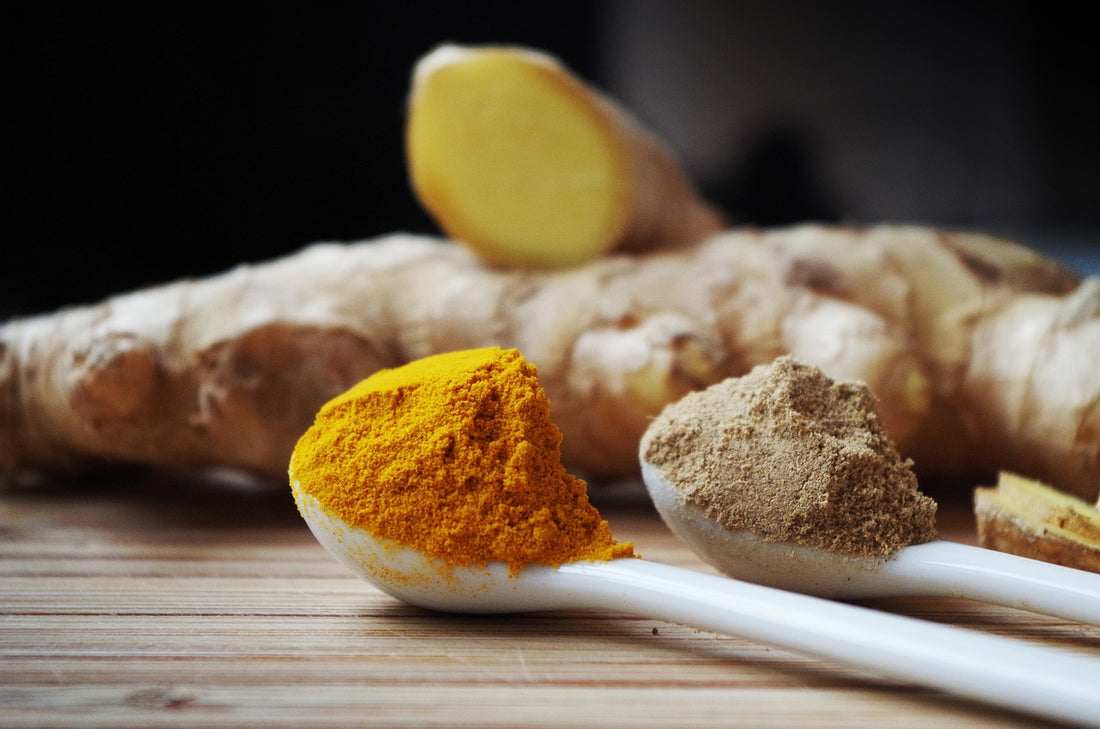Often when I walk into a health food aisle in a supermarket and see energy drinks with Ashwagandha, turmeric and cayenne shots, adaptogenic sparkling teas, etc., many thoughts get triggered – am I buying food, or am I buying medicine? Is it okay to combine medicinal herbs with random ingredients and preservatives? Should I consume these herbs daily without consulting a professional?
Some might say, food or medicine, so far as you ingest the herb, it should be the same. Well, I am no expert! But, I know my body, I eat with awareness and have had a food habits based on Ayurvedic principles since the time I remember. In my humble opinion, primarily food is what I eat on a daily basis for nourishment and sustenance, whilst medicine is what I have when my body or mind need healing and recovery.
Note: The words in brackets are Sanskrit transliteration of the English words.
Ayurveda, is a holistic science from India that focuses on balancing the functional energies (dosha) of a person based on their bio-individuality. The functional energies being the energy of movement (Vata dosha - comprising air and ether elements), the energy of transformation (Pitta dosha - comprising fire and water elements), the energy of structure (Kapha dosha - comprising water and earth elements). Ayurveda brings balance in these functional energies i.e. doshas by utilizing food, natural herbs and lifestyle of an individual. As such, the study of herbs is a big part of Ayurveda. So, what better science to analyze whether the herbs that we land up consuming are food or medicine.
Whilst the boundary between health food and medicine can be blurred, there are some clear distinguishing points that can act as a general guide.
In Ayurveda, the classification of herbs into foods and medicines is based on their inherent qualities, tastes (rasa), post-digestive effects (vipaka), and their impact on the doshas (Vata, Pitta, and Kapha). Here's how Ayurveda differentiates between herbs that are considered foods and those that are regarded as medicines:
What are the characteristics of herbs that can be consumed as food?
Taste forward
Herbs with sweet taste, like fennel and licorice, are considered nourishing and can be part of a balanced diet.
Herbs that might be slightly bitter or astringent but add flavor can be used commonly in everyday cooking. Some examples of herbs and spices you can use on daily are ginger, turmeric, rosemary, thyme, curry leaf and cilantro. These ingredients make food delicious and provide subtle therapeutic benefits without acting as strong medicines.
Impact on the body
Foods are typically those that provide sustenance, energy, and support to the body without overly stimulating or aggravating any of the functional energies (doshas). Hence, herbs that help balance the doshas and support overall health are often considered part of a regular diet. For example, coriander, fennel and rose are known for their cooling properties and as such might be helpful in balancing the fire element (pitta dosha) without impacting other elements. So, go ahead and brew yourself a cup of fennel tea or herbal rose tea everyday!
Impact on digestion
Some herbs and spices serve as aids to digestion and are included in meals to enhance the assimilation of nutrients. Examples of herbs and spices that support digestion are cumin, coriander, fennel, ginger, mint, Indian celery seeds, etc.

What are the characteristics of herbs that are medicinal?
Impact forward
Herbs with specific therapeutic actions, like Ashwagandha for adaptogenic and stress-reducing properties, are considered more medicinal and are used with a focused intention to address particular health concerns.
These herbs are generally very bitter (Tikta) and/or astringent (Kashaya) in taste e.g. Giloy, Triphala, Shatavari, etc.
Potent Effects on Doshas
Some herbs, due to their potency, may strongly influence one or more doshas. For instance, pungent herbs like garlic may be used medicinally but should be approached with awareness of their heating nature. Same is the case with neem, while being a great immunity booster, can aggravate vata dosha.
Prescribed Usage of Ayurvedic herbs
Ayurvedic practitioners prescribe certain herbs in concentrated forms, such as herbal powders, decoctions or herbal teas, or Ayurvedic oils, for specific therapeutic purposes. These are often used in a targeted manner for a defined duration and with specific carries (Vahi, that may be water, milk, honey, fat, etc. depending upon the herb). Also, the timing of consumption of the same herbs can be different for different individuals e.g. for someone dealing with obesity turmeric might be recommended with water on an empty stomach, but for someone with aggravated constipation turmeric might be better cooked with a good fat.
Consideration of bio-individuality
In Ayurveda, an individual's constitution (Prakriti) and current state of imbalance (Vikriti) are crucial factors in determining whether a particular herb is suitable as food or medicine for that person. What may be medicinal for one individual could be a regular part of the diet for another.
Ayurveda's approach in differentiating between herbs as foods and medicines is nuanced, considering taste, qualities, and the impact on doshas. Ultimately, Ayurveda celebrates the inherent connection between food and medicine. Our daily meals are not just fuel, but opportunities to nourish and balance our doshas.
With a gentle understanding of doshas and a respect for the power of these potent plants, you can navigate the beautiful blur between food and medicine, unlocking the healing potential hidden within every leaf and root. The key is to consume with awareness of how your individual body responds to the herbs and spices you use daily. When in doubt, consult with an experienced Ayurvedic practitioner for personalized guidance on the appropriate use of herbs based on individual needs and conditions.
The above is not medical or professional advice.

